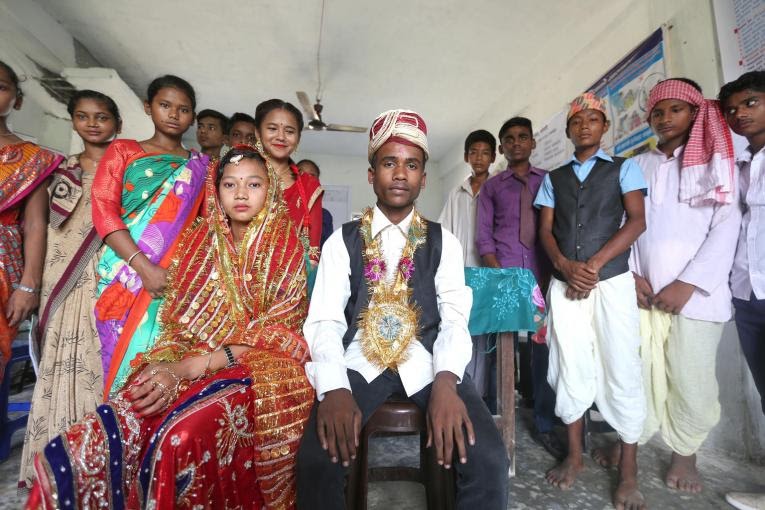Girls in Third World countries devastated by COVID
November 5, 2020
The Covid pandemic has put half a million young girls living in third world countries at risk of being forced into child marriage this year, after seeing twenty-five years of declining marriage rates, according to a new report published by the “Save the Children” charity. Before the novel coronavirus, twelve million girls got married each year; now the report warns that it’s up to almost two million more girls.
With up to 117 million children estimated to fall into poverty in 2020, many will face pressure to work and help provide for their families, according to the Save the Children International charity. The pandemic pushes more families into poverty, forcing many young girls to work to support their families, to become the main caregivers for sick family members, and to drop out of school with a small chance of ever returning. The pandemic also led to some school closures, and according to the charity (based on the experiences during the Ebola outbreak), many girls will never return to school and will be forced to start working at a very young age. This year, 191,200 girls will be affected by the risk of increased child marriage in South Asia. It is followed by West and Central Africa, where 90,000 girls are at risk, then Latin America and the Caribbean (73,000), and Europe and Central Asia (37,000).
Prior to the pandemic, data showed that child marriage was increasing just among refugee populations. For instance, in Lebanon, data showed that child marriage among Syrian refugee girls rose by 7% between 2017 and 2018.
There are three main drivers when it comes to early child marriage. Some of the reasons are safety concerns and lack of educational opportunity, but by far the most common reason is usually economic insecurity. For many families facing poverty, the decision to wed their child at a young age may serve as a necessary means for survival. As Covid deepens poverty in poor countries, more families are being pushed to consider marrying their daughters off to relieve some of their financial burdens.
Schools being closed can also present an added financial burden to many families because most of the schools provide food services to students. Though some schools are providing online schooling, many families, especially in poor countries, cannot afford the technology needed, resulting in children leaving school at a young age.
In every crisis, challenges are prioritized, and as the number of new cases is rising all around the world, helping young girls in poor countries is not prioritized for the time being, unfortunately.




















